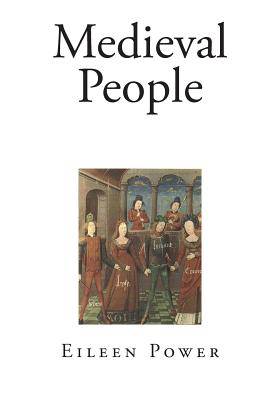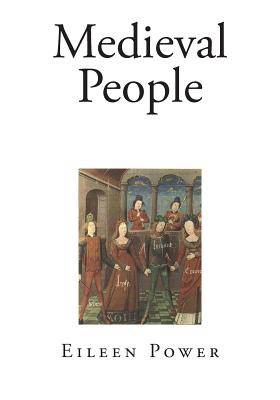
- Retrait gratuit dans votre magasin Club
- 7.000.000 titres dans notre catalogue
- Payer en toute sécurité
- Toujours un magasin près de chez vous
- Retrait gratuit dans votre magasin Club
- 7.000.000 titres dans notre catalogue
- Payer en toute sécurité
- Toujours un magasin près de chez vous
17,45 €
+ 34 points
Format
Description
Medieval People by Eileen Power A Complete Guide Every schoolboy knows that the Middle Ages arose on the ruins of the Roman Empire. The decline of Rome preceded and in some ways prepared the rise of the kingdoms and cultures which composed the medieval system. Yet in spite of the self-evident truth of this historical preposition we know little about life and thought in the watershed years when Europe was ceasing to be Roman but was not yet medieval. We do not know how it felt to watch the decline of Rome; we do not even know whether the men who watched it knew what they saw, though we can be quite certain that none of them foretold, indeed could have foreseen, the shape which the world was to take in later centuries. Yet the tragic story, its main themes and protagonists were for all to see. No observer should have failed to notice that the Roman Empire of the fourth and fifth centuries was no longer the Roman Empire of the great Antonine and Augustan age; that it had lost its hold over its territories and its economic cohesion and was menaced by the barbarians who were in the end to overwhelm it. The territory of the Roman Empire had at its height stretched from the lands bordering the North Sea to the lands on the northern fringes of the Sahara, and from the Atlantic coast of Europe to the central Asiatic Steppes; it comprised most of the regions of the former Hellenic, Iranian, and Phoenician empires, and it either ruled or kept in check great clusters of peoples and principalities beyond its Gallic and north African frontiers. From these farthest frontiers Rome of the fourth century had retreated and was still retreating.
Spécifications
Parties prenantes
- Auteur(s) :
- Editeur:
Contenu
- Nombre de pages :
- 164
- Langue:
- Anglais
- Collection :
Caractéristiques
- EAN:
- 9781500887117
- Date de parution :
- 19-08-14
- Format:
- Livre broché
- Format numérique:
- Trade paperback (VS)
- Dimensions :
- 178 mm x 254 mm
- Poids :
- 294 g

Les avis
Nous publions uniquement les avis qui respectent les conditions requises. Consultez nos conditions pour les avis.






